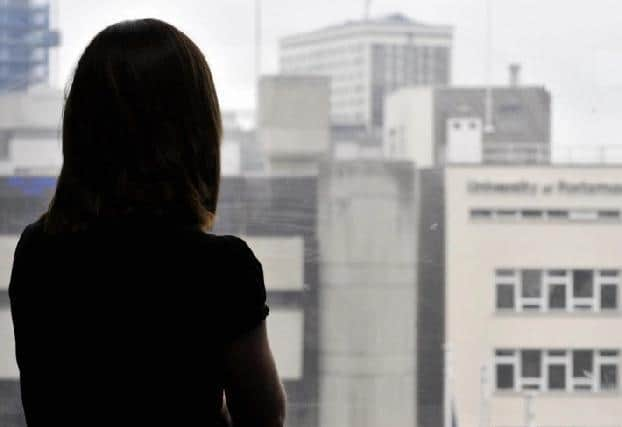Mental health referrals have dropped dramatically during pandemic – here’s how many people have missed out on help in Bedfordshire
and live on Freeview channel 276
Mental health referrals have fallen dramatically during the pandemic with over 1,000 fewer people accessing talking therapy in Bedfordshire for common conditions like depression or anxiety.
The number of referrals to the NHS improving access to psychological therapies (IAPT) programme in the Bedfordshire, Luton and Milton Keynes Clinical Commissioning Group (CCG) area dropped by 9.8 per cent last year.
Advertisement
Hide AdAdvertisement
Hide AdThe figures, published by NHS Digital, show 9,490 people were referred for treatment between February and November 2020 compared to 10,525 in the same period in 2019 – a decrease of 1,035.


Across England more than a quarter of a million fewer people accessed talking therapy during the pandemic, with figures for November showing referrals dropped sharply when the second national lockdown was brought in.
The IAPT service provides short-term talking therapy for adults with anxiety disorders, depression or stress. Patients can refer themselves or go through a GP.
Mental health charity Mind said it is concerned that many people are not getting the help they need now, which could worsen their health and lead to increased pressure on services down the line.
Advertisement
Hide AdAdvertisement
Hide AdLeila Reyburn, Mind policy and campaigns manager, said: “The coronavirus pandemic is affecting all of our lives, especially those of us living with mental health problems.
“We’re concerned that without the right support more people may reach a crisis point for their mental health, requiring more expensive and intensive treatment, further down the line.
“More needs to be done to understand this drop, but we’re concerned too many people who could benefit from therapy are not getting the help they need, and a future increase in demand could result in lengthy and varied waiting times, depending where you live.”
The biggest year-on-year drop in referrals in Bedfordshire came during April, with a decrease of 60 per cent compared to 2019.
Advertisement
Hide AdAdvertisement
Hide AdA Bedfordshire, Luton and Milton Keynes Clinical Commissioning Group spokesman said: "IAPT services saw a reduction in referrals and self-referrals during the early stages of the Covid pandemic, particularly during the first lockdown.
"At the start of the pandemic, IAPT services quickly moved to online and telephone delivery.
"The Bedfordshire Wellbeing Service was also very quick to get messages out to the public that they were there to support people. The service was one of the quickest to get back to and beyond 2019 levels.
"While nationwide there was a drop in November, Bedfordshire’s service saw a 4 per cent increase in referrals compared to October. January to March is set to be the busiest quarter ever seen in the Bedfordshire service, with over 3,000 patients expected to access support.
Advertisement
Hide AdAdvertisement
Hide Ad"The service is providing a range of support for people living or working in the Central Bedfordshire and Bedford borough areas, including NHS staff and other keyworkers.
"As well as talking therapies, there is a range of one-off wellbeing webinars. We would encourage anyone who feels anxious, low or stressed to seek early help by contacting the Bedfordshire Wellbeing service (here or telephone 01234 880400.”
Ms Reyburn from Mind said it was important the NHS and Government ensure people know mental health services are still open, and that service providers should recognise non face-to-face support may not work for everyone.
“What works will vary from person to person, so people need to be given a choice of treatment tailored to meet their needs,” she said. “This includes making sure people are offered culturally appropriate, trauma and gender informed support."
Advertisement
Hide AdAdvertisement
Hide AdA spokesperson for the NHS said: “The NHS has been open to people with concerns about their mental health throughout the pandemic, including through talking therapy sessions, which the public can self-refer on to for both face-to-face and online sessions and referrals are now rapidly increasing.
“It has been a tough year, but the NHS is here to help, so anyone who is struggling should come forward for the help they need.”